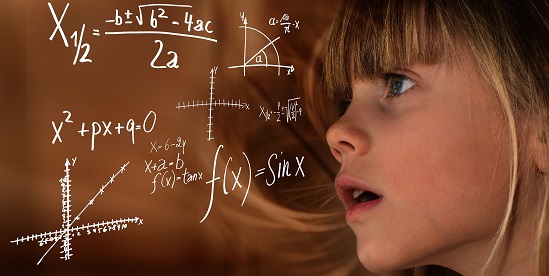Call to action for girls in STEM: Deakin report
Media releaseThe number of girls taking part in science, technology, engineering and mathematics (STEM) subjects has been declining at an alarming rate and has caused Australia to fall behind compared with other developed countries, a new study has found.
The Girls' Future - Our Future report was developed for the Invergowrie Foundation by a team of researchers from Deakin University and the University of Melbourne.
Deakin University School of Education researcher Dr Linda Hobbs said the participation rates of girls in STEM - particularly in physics and advanced mathematics - had declined since the 1990s.
"This trend is similar in many Western countries, but particularly prominent in Australia," Dr Hobbs said.
"There is a resulting concern with Australia's performance in the STEM disciplines compared with other countries, both in the research and development sector, and in education."
Only 5.9 per cent of female year 12 students take up a physics unit, compared with 21 per cent of males. Other discrepancies can be seen in advanced maths (6.2 per cent female, 11.5 per cent male), intermediate maths (20.6 per cent female, 28.4 per cent male) and chemistry (16.5 per cent female, 19.2 per cent male).
"The low number of girls in physics and advanced mathematics is particularly problematic, because these are considered the 'enabling' STEM subjects - those subjects provide access to tertiary level science and engineering courses and provide much greater job opportunities after graduation," Dr Hobbs said.
Deakin University Science Education Chair Alfred Deakin Professor Russell Tytler said researchers found a key factor that impacted girls' engagement in STEM was the "deeply embedded" gender bias in our cultural expectations and traditions.
"This bias continues to impact negatively on the formation of girls' attitudes, identity and self-efficacy beliefs with respect to STEM," Professor Tytler said.
"Girls and boys at pre-school age, all the way through to primary and secondary school, are exposed to different gendered experiences by their parents, carers and teachers.
"What it is to be 'a girl' and how girls are encouraged to be part of the world is constrained and directed by cultural stereotyping and experiences from an early age, and children as young as six have been shown to associate science with males in part because of the pervasive alignment of STEM with masculinity."
Dr Hobbs said this "identity gap" was particularly striking among girls from ethnic minority or lower socioeconomic status backgrounds, and the challenge of addressing the issue "seems to be greater than might have been anticipated".
"What we need is a durable, concerted effort with parents, teachers and career advisors all working together to start early and assist girls in developing positive concepts of themselves in STEM subjects, and to continue to do so in a sustained way," she said.
Other potential avenues suggested as part of the road map for a call to action include ongoing STEM career awareness education, providing supportive educational experiences, and engaging girls with carefully selected role models.
Invergowrie Foundation Chair Wendy Lewis said the issue should be treated as a "high priority".
"The implications for not addressing this issue now will have major ramifications going forward," Ms Lewis said.
"These include a lack of gender balance … the absence of equal opportunity for all people, and the decline in the economic empowerment of women."
The Girls' Future - Our Future report is available in full at the Invergowrie Foundation website.

